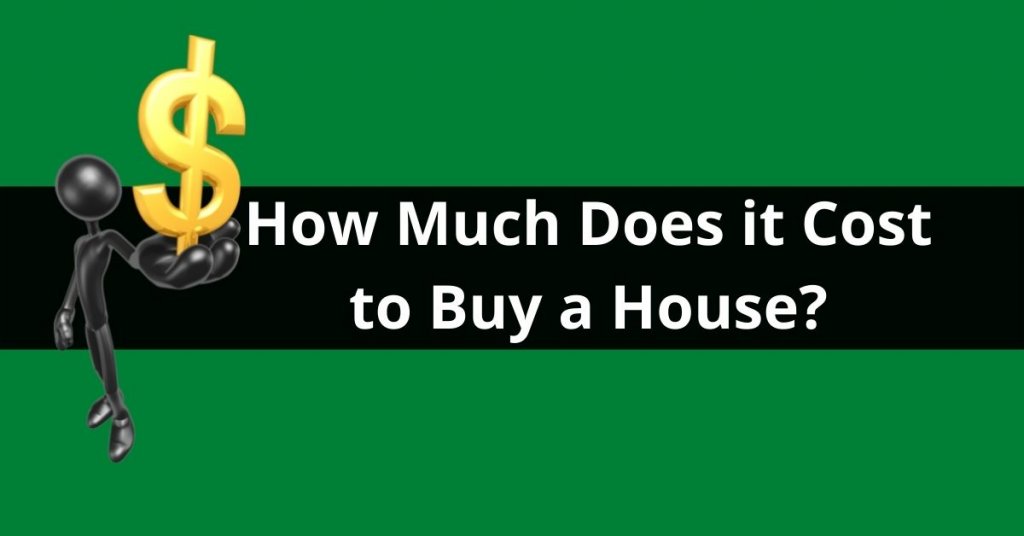The cost to buy a house varies depending on where you live, the demand for the type of house you want to buy, closing costs, and how good of a negotiator you are. One important thing to keep in mind is that the monthly payment you’ll make on your mortgage should be no more than 30 percent of your monthly income. But this only applies to you if you’re a consumer buying a house and not if you’re an investor, wholesaling real estate, or if you are paying cash for a house.
If you’re paying cash for the house then you’re paying for everything up front so there is no need to worry about affording a mortgage. Investors and wholesalers are either going to pay for cash upfront or they’ll be using a hard money loan and have already forecasted a net income on the resale and this is part of their business. They do not plan on living in the house which is why their monthly income is not important whereas you as a home buyer or resident is.
But why are we saying the monthly payments for non-professional home buyers should be no more than 30% of your income?
Simple, a bank or mortgage lender needs to feel confident that you can make your mortgage payment each month and the 30% or less tends to be a lenders comfort zone. But being in the lender’s comfort zone isn’t the only thing to consider, you have to also build your own budget as your budget will determine how much it actually costs to buy a house.
When developing your house-buying budget you’ll want to factor in all your expenses like credit card bills, childcare, vacations and other expenses so you are not buying a house you can’t afford. There are also other costs associated with buying your home.
Closing costs, title searches, and real estate agent fees (if you use an agent which we do recommend) will all add to the cost of buying a house. But good news, some of the costs (specifically some of the closing costs) will be covered by the seller. You can also choose which title company you use helping you save a bit more if you shop around.
Now let’s jump into each of these costs from biggest to smallest to help you further learn how much it costs to buy a house.
The Costs to Buy a House Include:
- Down payment
When buying a house, a down payment is essentially your deposit on the property. This payment is made upfront rather than included in the mortgage.
The cost of the house determines the amount and how much you can put down. For instance, if you are buying a house for $100,000 and make a down payment of 10 percent, you are paying $10,000 upfront and the mortgage will be $90,000.
But not all loans will require 10% down. FHA loans for example may go as low as 3.5% for a down payment. VA loans may have no down payment and the same goes for some USDA loans.
- Closing costs You will have closing costs when buying a house. Closing costs are all the expenses related to the mortgage, such as title insurance, title search fees, transfer fees, and appraisal fees. These costs are typically 2 to 5 percent of the amount owed.
- Title search
If you are buying a house, you will need a title, a document that includes the specifics about the property, such as the owner (usually in the form of a deed). This is a public record; a title agent can handle the title search prior to closing on the house.
Fees for this service vary depending on the property. For example, a title search for a single-family home can cost between $100 and $250; a title for a larger, more complex property could cost $1,000.
Now that you know the costs you have to pay to buy a house, there is good news. The seller may have to take on some costs which reduces the amount you have to pay. These can be negotiated by your agent or once you’re at the table with the seller.
Seller costs
The seller may have to put up some costs, which will save you money. Here are two of the major seller costs:
- Property taxes The seller may have already paid the full amount of property taxes for the year. In this case, you are not responsible for this expense as the buyer. However, if the seller paid a portion of the taxes, that amount may be prorated, and they will receive a rebate at the time of sale.
- Home inspection Some sellers hire a professional to do a home inspection before putting the property on the market. This can cost between $400 and $500. The inspection will ensure the property is safe and up to code. Depending on the result of the inspection report, the seller may or may not make any repairs to the house.
If a property is not inspected before the sale (which is never recommended if you’re planning to move in and not rebuild), you may choose to have the property inspected after buying the house.
Now you know the costs associated with buying a house and can forecast how much it costs to buy a house in your market.

